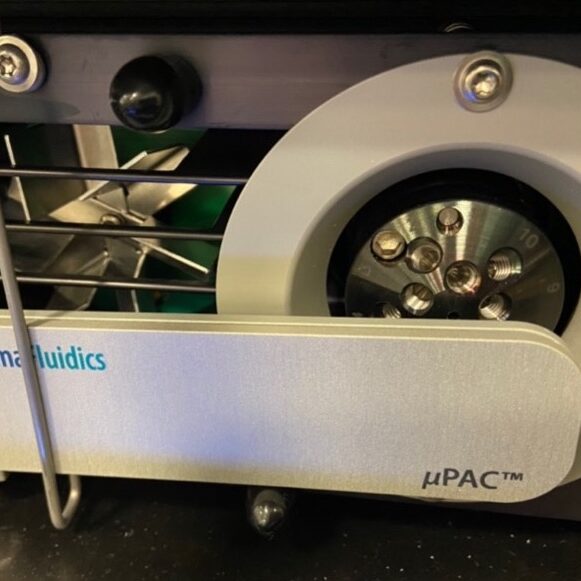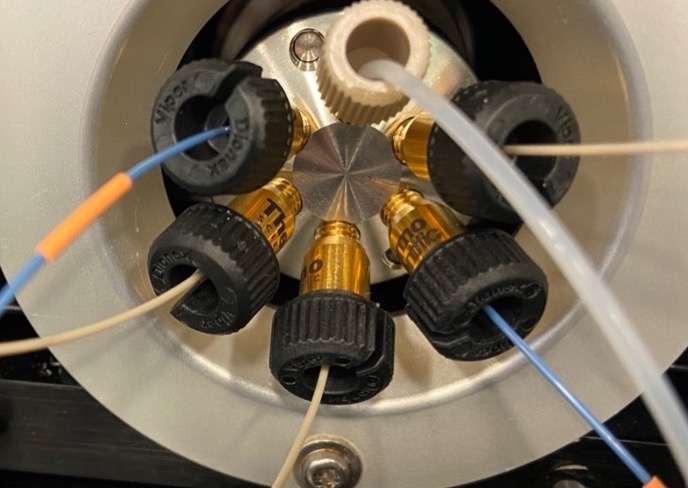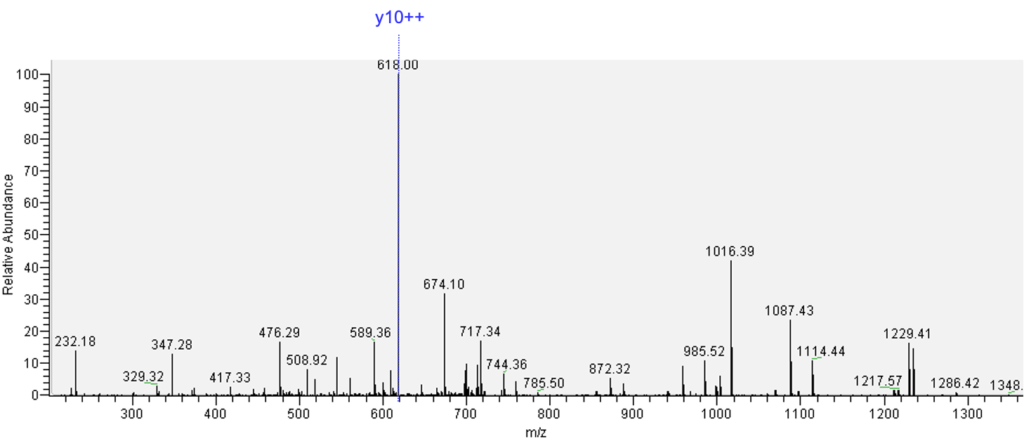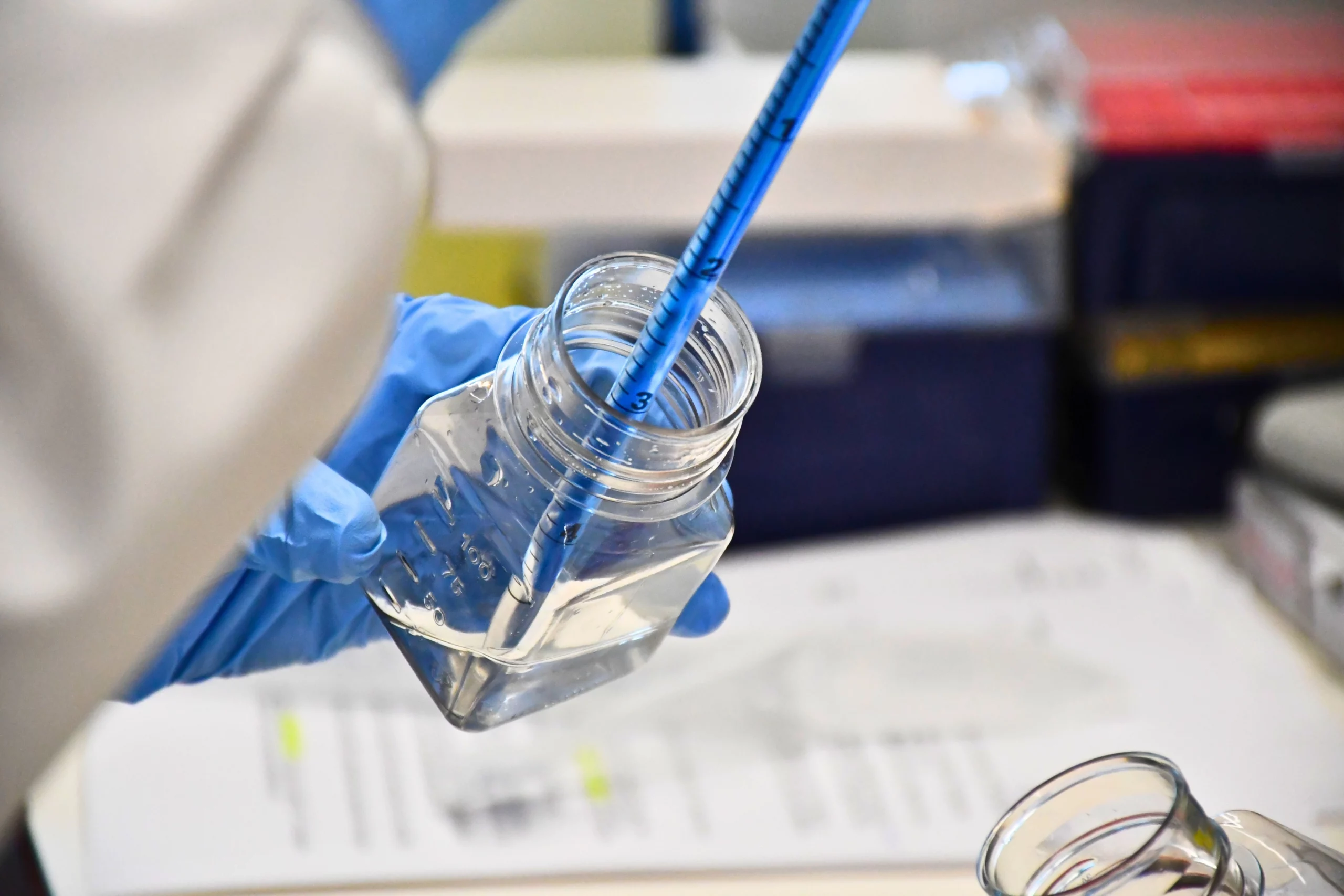The Biological Mass Spectrometry facility’s remit is to support the protein and peptide mass spectrometry requirements of the CRUK Manchester Institute’s research groups. This support covers a whole spectrum of activities ranging from the provision of routine services, implementation of new technologies onsite, through to dedicated collaborations designed to develop novel applications enabling cutting edge cancer research. One major role of the facility is to enable cancer researchers by developing workflows beneficial to their research projects. The facility currently boasts three complementary nano-LC-MS-MS systems, which form the backbone of both service and development portfolios.
We offer an array of qualitative and quantitative analyses in the areas of protein identification and post-translational modifications. These applications are currently supported with a combination of Thermo Orbitrap Lumos, Q Exactive HFx and Sciex 6600 mass spectrometers, each coupled to high resolution nano UPLC systems. We utilise high resolution nano LC as a key technology to enhance data quality using both conventional silica based and micropillar array chemistry based LC. We also offer offline multidimensional HPLC separations at the peptide level utilising both ion exchange and reverse phase chemistries to achieve maximum proteome penetrance.
Featured Publications

2023 Annual Report
13th September 2024
Qualitative Protein Identification
We currently utilise an Orbitrap Lumos for the identification of proteins ranging in complexity from single proteins to entire proteome extracts (with or without multidimensional chromatography).
Protein identifications are performed by nano-LC-MS-MS followed by database searching using a suite of informatic tools including Mascot Distiller, Mascot, Scaffold and Peaks.
All tools are housed in our bespoke high performance computing environment utilising a managed virtualised windows environment that provides HPC resources for both processing power and memory in a fully scalable manner.

Quantitative Protein Identification
We support the isotope labelling strategies of SILAC, dimethyl, iTRAQ, TMT and TMTpro, in addition to label-free quantitation.
Data analyses for these applications is supported predominantly with Peaks and Progenesis LCMS software, housed in a VM environment within the Institute’s high performance computing system.
We also offer targeted protein quantification using ultra performance parallel reaction monitoring (PRM) approaches that can offer a viable, cost and time effective alternative to western blotting in many cases.

Post Translational Modifications
The Biological Mass Spectrometry facility offer an array of post-translational modification analyses including phosphorylation, acetylation, methylation, ubiquitination and SUMOylation.
We utilise a toolbox of different enzymes to enhance sequence coverage and enable more comprehensive PTM analyses appropriate to the experimental requirements.

Image: GG Modified Ubiquitin peptide (K48)

Meet the Biological Mass Spectrometry Team
The facility benefits from highly motivated and skilled staff with a combined 40 years of experience in the proteomics field.
Core Facility Manager
Get in touch
Our vision for world leading cancer research in the heart of Manchester
We are a leading cancer research institute within The University of Manchester, spanning the whole spectrum of cancer research – from investigating the molecular and cellular basis of cancer, to translational research and the development of therapeutics.
Our collaborations
Bringing together internationally renowned scientists and clinicians
Scientific Advisory Board
Supported by an international Scientific Advisory Board
Careers that have a lasting impact on cancer research and patient care
We are always on the lookout for talented and motivated people to join us. Whether your background is in biological or chemical sciences, mathematics or finance, computer science or logistics, use the links below to see roles across the Institute in our core facilities, operations teams, research groups, and studentships within our exceptional graduate programme.








Meet the Team Leader – Duncan Smith
The remit of the Biological Mass Spectrometry core facility is to support our world class cancer researchers by providing access to innovative proteomics services to amplify the impact of cancer discoveries. We provide access to LCMS technology with an Oribtrap Lumos coupled to nano chromatography embedded within an ecosystem of established and evolving workflows enabled with numerous biochemical and software driven solutions to biological problems.